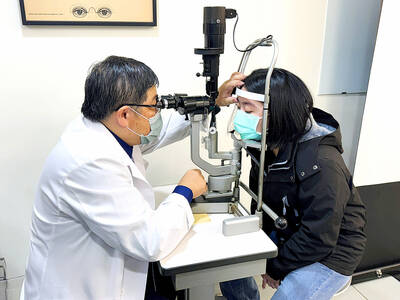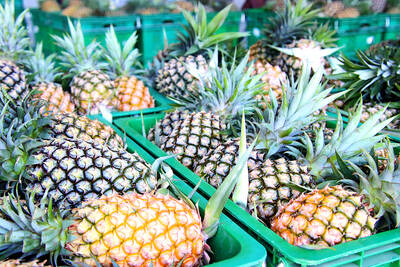1. 為了在最短期間精通日文,他非常用功。
ˇ He is working very hard (in order) to master Japanese in the shortest possible time.
χ He is working very hard for mastering Japanese in the shortest possible time.

Photo: AdobeStock l 圖片:AdobeStock
註: 用 for + 動名詞表示目的,是不合習慣的,應改用不定詞。請看下列句子:
農夫們拿起了武器來保衛他們的村莊。
The farmers took up arms to defend their village.

Photo: AdobeStock l 圖片:AdobeStock
為了改進工作,我們修改了部分計劃。
We made some changes in our plan (in order) to improve our work.
for 作「為了」解,後面跟名詞則是通順的。例如:
我們為這個計畫拚命。
We are working hard for this project.
我們正在為下一代創造更幸福的生活。
We are building a happier life for our children.
2. 他很怕冷。
ˇ The cold bothers him.
ˇ Cold weather bothers him.
χ He is afraid of the cold.
註: 我們在英漢詞典或中學課本中所看到的英文字詞的中文解釋,和它的英文原義往往只有局部相等。中文的「怕」只有在表達恐懼時,才能用fear 或be afraid of,不能隨便套用,請參考下面二例:
這錶不怕水。
The watch is waterproof.
我不怕熱。
The heat doesn’t bother me.
3. 這兒交通很方便。
ˇ It is quite easy to get anywhere from here.
χ The traffic is very convenient here.
註: traffic 主要指的是來往的車輛。關於誤句我們曾經做過一項調查,詢問了十幾位以英語為母語的人士,沒有人懂得誤句的意思。以下是他們的反應:“Too weird to understand.”、“Not certain.”、“Too strange.”、“Unintelligible.”。經過解釋後,他們表示除了上面所舉的正句外,可視情況說:
Transportation/Travel is convenient here.
The traffic conditions are good.
Getting around is easy.
It’s a good location for public transportation.
4. 我背痛。
ˇ I have pain in my back.
χ I am painful in my back.
註: painful 用於事物,意為「痛苦的」。例如:
Did you have a painful experience?
We are apt to reject painful truths.
類似的形容詞有 shameful、dangerous、frightful、wonderful、harmful等。
5. 全校老師領導學生共同打掃校園。
ˇ All the teachers led the students in cleaning up the school grounds together.
χ All the teachers led the students to clean up the school grounds together.
註: lead +受詞(人)+不定詞作「使人……」解,例如:What led you to think so?。lead 作“領導”解時,後接受詞,可用副詞片語修飾, 但不接不定詞,如“工程師領導我們重建大橋”一語不應譯為 *The engineer led us to reconstruct the bridge.,應改為The engineer led us in the reconstruction of the bridge.。
Exercises
A.為了改進工作,他們修改了部分計畫。
They made some changes in their plan __________ their work.
1. for improving 2. to improve
3. in order to improving 4. improving
B.是什麼使你們相信你們會獲得最後的勝利?
What led you __________ that you would win in the end?
1. believe 2. believing
3. in believing 4. to believe
Answers : A. 2 B. 4
文章由書林出版公司提供:
www.bookman.com.tw
蘇正隆 — 台灣翻譯學學會前理事長、師大翻譯研究所兼任副教授; 編著《走讀自然.花言樹語》,《英語的對與錯》,《世紀病毒:必讀防疫英文知識與詞彙》...等。國家教育研究院中英雙語詞彙審議委員;研究領域為翻譯、術語及詞典編譯,從事植物與人文導覽數十年,亦曾應邀遠赴國外大學做植物人文導覽。

A: Recently, I’ve been seeing mosquitoes flying around in front of my eyes. The doctor said it’s the “flying-mosquito disease.” B: Flying mosquitoes? What a strange name. A: They’re actually called “floaters” in English, meaning floating debris. When fibrous substances in the vitreous body inside the eyeballs increase, floaters can appear in the visual field. B: Oh my goodness. Can you get rid of them? A: According to ophthalmologist Horng Chi-ting’s research, taking the enzymes of certain fruits is likely to help reduce floaters. A: 我最近一直覺得眼前有蚊子飛來飛去,結果醫生說是「飛蚊症」。 B: 飛蚊症?好奇怪的病名。 A: 英文名稱叫「floaters」, 也就是漂浮物的意思。 因為眼球的玻璃體中纖維化物質增多,導致視野出現漂浮物。 B: 天啊!要怎麼把蚊子趕走? A:

In Taiwan, people can use a platform to rent a power washer for a weekend or share unused garage space for someone’s storage needs. These are examples of the sharing economy, a consumption model that has gained widespread adoption worldwide. This approach allows people to rent or share assets like cars, homes or even services, typically through online platforms. This innovative model poses a simple yet powerful question: why purchase infrequently used items when sharing is more practical? By making useful but idle resources accessible, the sharing economy turns them into sustainable opportunities. Internationally, platforms like Airbnb and Uber have popularized

Bilingual Story is a fictionalized account. 雙語故事部分內容純屬虛構。 I stand by the Miluo River as dusk falls. The court betrayal is too much. I served Chu with loyalty. I forged alliances and fought corruption. But the whispers of jealous courtiers, the murmurs of treason, spoke louder. The king cast me out. The water looks calm. It promises peace. I step in. The river is cold against my legs. I hear shouts behind me — fishermen calling my name. I keep walking. The calls grow louder, but I do not turn around. The water rises to my chest. It pulls at me. I

A: What types of fruit enzymes should we take to help reduce eye floaters? B: According to a study published in the “Applied Sciences” journal by Taiwanese ophthalmologist Horng Chi-ting, pineapple, papaya and fig supplements can improve symptoms. A: Pineapples are in season now, so you should munch on more of those to get rid of floaters. B: Not quite. Enzymes can be damaged by our stomach acid if we eat the fruit directly. The doctor says taking fruit enzyme capsules is better for absorption. A: Most importantly, we should reduce our use of personal electronics to prevent floaters from